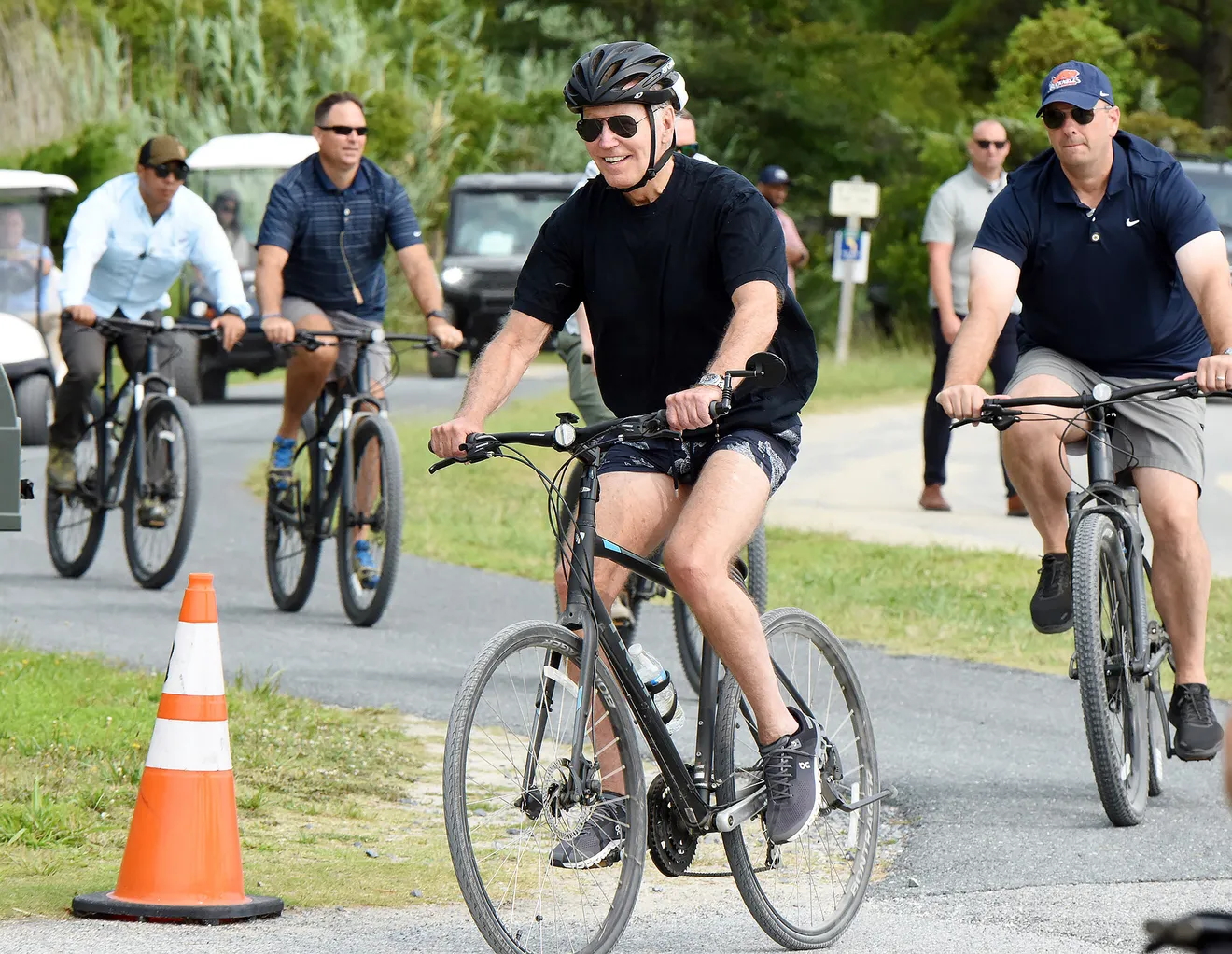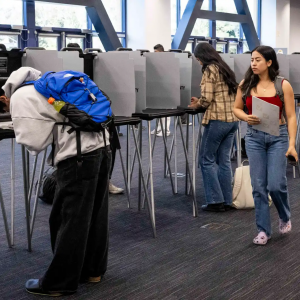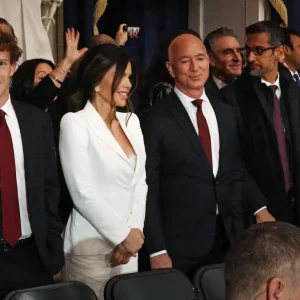“[Biden’s] health and age kind of get in the way of his ability to be a good president of the United States,” says a female poll respondent from Wisconsin. He is a “well-meaning elderly man with a poor memory,” says special counsel Robert Hur’s recent report on the president’s handling of classified documents. These are not positive descriptors for someone hoping to stay in the White House for another four years.
Unlike other attributes of identity, age is often forgotten about. However, discussions around Joe Biden’s age have plagued his presidency. President Biden, if elected to a second term, will be 86 years old by its end. Former President Trump is not that much younger, as he will be 81 years old by the end of a possible second term. This reflects the aging political leadership in the United States as a whole, with prominent party leaders like Mitch McConnell and Nancy Pelosi in their early 80s. Politicians, pundits, and voters have voiced concerns over issues such as the memory and general mental aptitude of both leading presidential candidates. Yet how much does age actually matter? Based on the current and historical discussion, it is clear that in electoral politics, the perception of age and physical health is more important than the actual physical well-being of a candidate.
Age, while important today, has not been a topic during every election cycle. However, overall physical and mental fitness was. John F. Kennedy is often remembered as young, charismatic, fit, and attractive. So swaying was Kennedy’s physical charisma that famously, during the 1960 Kennedy-Nixon presidential debate, those who watched the television broadcast believed Kennedy won. In contrast, those who listened to the radio broadcast believed Nixon had a better grasp of the issues. However, this popular image covers the reality of a man plagued by medical issues, the most significant being the autoimmune disease Addison’s Disease. Since he was a child, Kennedy faced medical problems like scarlet fever and back problems that followed him throughout adulthood. Kennedy’s Addison’s also resulted in him taking medications and wearing a back brace for much of his life. This was something that was kept from the press, and Kennedy himself denied having “real Addison’s Disease”. This statement was technically true but did not speak to the medical procedures Kennedy was undergoing. This omission seems to have helped Kennedy, as he is not remembered as a sickly man or someone who underwent much medical stress. Instead, he’s remembered as youthful compared to his political opponents. Even though medical issues could have possibly impaired his ability as president, especially during the high-stress geopolitical climate of the 1960s, Kennedy managed to keep this doubt at bay. In electoral politics, the ability or health of the President does not matter as much as the perception of it. By simply projecting an image of a healthy young man, Kennedy was able to put the reality of his physical state out of the minds of voters.
Age became a concern during the 1984 reelection campaign of Ronald Reagan. Reagan, then 73, was running as the oldest presidential candidate in history. However, he engaged with concerns of his age head-on. It was something that he had to confront, given that his age was a public fact that could not be hidden, unlike personal medical problems. During the Presidential debate, Reagan, when asked about his age, managed to deflect this by famously saying: “I will not make age an issue of this campaign. I am not going to exploit, for political purposes, my opponent’s youth and inexperience”, sparking laughter from the audience. While age could very well have been an issue in this election cycle, Reagan managed to present as if it was not. This was helped by Reagan’s physical appearance and projection that he was still physically and mentally fit. Reagan’s charisma and wit were what helped endear him to the American people in the first place. While his critiques were different from Kennedy’s, Reagan was still able to deflect accusations by curating an image that went against the notion that a physical aspect made him unfit. Voters’ perception of Reagan’s sharp and quick wit could not coexist with the notion that Reagan was too old or unfit for office.
When it comes to the controversy of Biden’s age, it is imperative to look at the media craze surrounding this issue. Special counsel Robert Hur claimed in a report that Biden’s mental capacity made him unfit for leadership, which bolstered claims that right-wing media had been making and the concentration on “gaffes” and other slips that Biden had made. While these gaffes are nothing new, as many presidents have sometimes made verbal slip-ups even so far back as 1987, there is much more attention on Biden making mistakes. These include confusing Egypt with Mexico, forgetting the names of current world leaders, and tripping on the stairs to Air Force One. Biden has also refused a cognitive competency test and seems annoyed at the discussion surrounding his mental fitness. On February 9th, Biden even yelled at a reporter in the White House over this, saying in a raised voice, “That’s your judgment, that is your judgment! That is not the judgment of the press.” Trump, a similarly old candidate, has also made “gaffes”, such as misremembering his wife’s name. However, Trump is not pressed on his cognitive ability as much as Biden. When it comes to the cognitive science on the issue, many factors can affect memory, independent of age. High-pressure situations, common with being President, can also impair memory. The more objective reality of Biden’s mental state is still up in the air, with the president’s refusal to take a cognitive test not helping in this regard. However, Trump’s cognitive test results seem to also be unclear, with experts disputing Trump’s claims of content on the cognitive test he allegedly has taken, putting those claims in jeopardy.
The objective reality of a politician’s fitness does not matter; only how they are perceived. Right-wing media seems to know this quite well and has pushed the discussion of Biden’s mental fitness into the mainstream while neglecting any questions about Trump’s cognitive ability. This sets Biden up for failure on this front; unlike Kennedy or Reagan, Biden has not done enough to deflect accusations that age could weaken his mental ability and the publicization of verbal or physical mishaps. Furthermore, despite having some die-hard supporters, both candidates are very unpopular; Trump had an average approval rating of 41% at the end of his term, and Biden currently has an average approval rating of 43%. Age seems to be a factor, as this is undoubtedly an issue, but there seem to be very few younger options for Democrats or Republicans that could currently win a presidential election. Americans do not seem confident in two older men whose ages appear to be on full display. Voters already have decided that age has impaired Biden’s cognitive ability, and Trump’s cognitive ability will likely be thrown into question. Now, it is likely that popular perception of the candidates’ ages will remain an issue throughout this election cycle.
Featured image source: Delaware Online






Comments are closed.